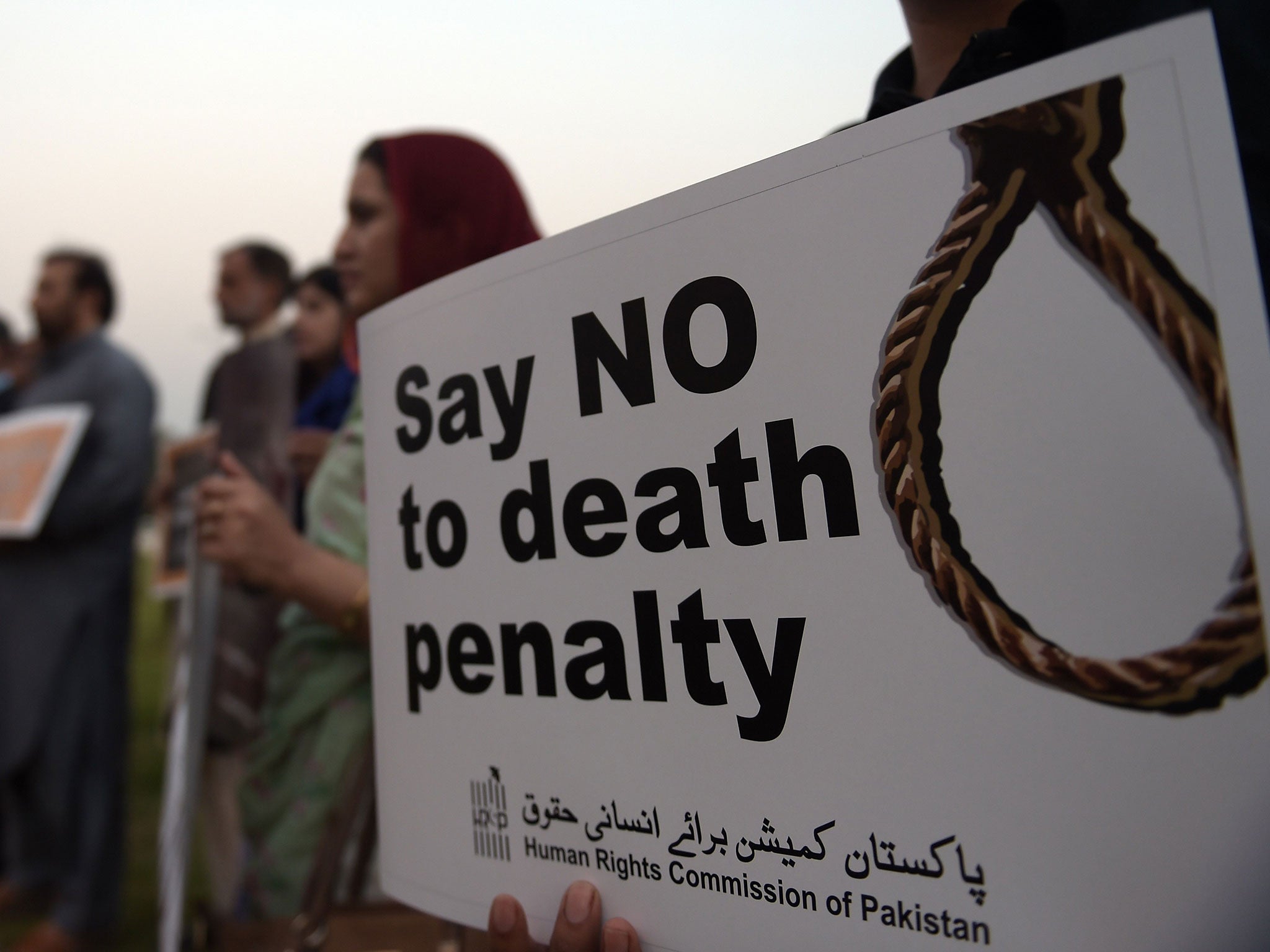Pakistan executions pass 400 despite international protests over re-introduction of the death penalty
The British Government said it had opposed the death penalty with the Pakistani government 'at the highest level'

Your support helps us to tell the story
From reproductive rights to climate change to Big Tech, The Independent is on the ground when the story is developing. Whether it's investigating the financials of Elon Musk's pro-Trump PAC or producing our latest documentary, 'The A Word', which shines a light on the American women fighting for reproductive rights, we know how important it is to parse out the facts from the messaging.
At such a critical moment in US history, we need reporters on the ground. Your donation allows us to keep sending journalists to speak to both sides of the story.
The Independent is trusted by Americans across the entire political spectrum. And unlike many other quality news outlets, we choose not to lock Americans out of our reporting and analysis with paywalls. We believe quality journalism should be available to everyone, paid for by those who can afford it.
Your support makes all the difference.The number of people executed in Pakistan since it resumed hangings just 18 months ago is feared to have passed 400.
The government has ignored international appeals to reinstate a moratorium on the death penalty, which was removed following a Taliban terror attack that saw 130 children massacred at a school in Peshawar in 2014.
Pakistan has since become one of the most prolific users of the death penalty in the world, executing 404 people so far according to research by Reprieve.
The human rights organisation warned that the figure could be higher as not all executions may be recorded.
Maya Foa, director of its death penalty team, said: “That Pakistan has gone from a non-executing state to executing over 400 people in little over 18 months is truly shocking.
“The Pakistani Government seems indifferent to the plight of the many prisoners who should not even be on death row – those arrested as children, or suffering from severe physical or mental illnesses.
“They need to put a halt to all executions until a full review of this chaotic capital punishment system can be carried out.”
More than 70 hangings have taken place this year, putting Pakistan among the top countries for the death penalty behind China, Iran and Saudi Arabia.
Among a number of controversial cases is that of Abdul Basit, a paralysed prisoner who remains on death row despite concerns that there is no way to execute him that would not carry a high risk of prolonged suffering.
He told his lawyers that during a previous attempt to hang him, the prison authorities had built a slope or ramp up to the gallows in order to take him to be hanged in his wheelchair.
As in Saudi Arabia, convicts who were arrested under the age of 18 are among those awaiting executions, in violation of international law.
Pakistan was among the human rights priority countries highlighted by the Foreign and Commonwealth Office (FCO) in a recent report, which said the British Government had been “pressing” ministers in Islamabad on a number of issues.
The 325 people executed in 2015 may have been the highest number in Pakistani history, the report said, while an estimated 8,000 people remain on death row.
The de facto moratorium on the death penalty was lifted first for terrorism in December 2014 and then the following March for all capital crimes, including rape, adultery and murder.
“There were serious concerns over Pakistan’s use of the death penalty, including fair trial issues and the execution of persons who were alleged to have been minors at the time of the offence,” the FCO said.
“At the highest level, the UK made clear to Pakistan its opposition to the death penalty. We urged Pakistan to reinstate the moratorium and comply with international commitments.”
Join our commenting forum
Join thought-provoking conversations, follow other Independent readers and see their replies
Comments